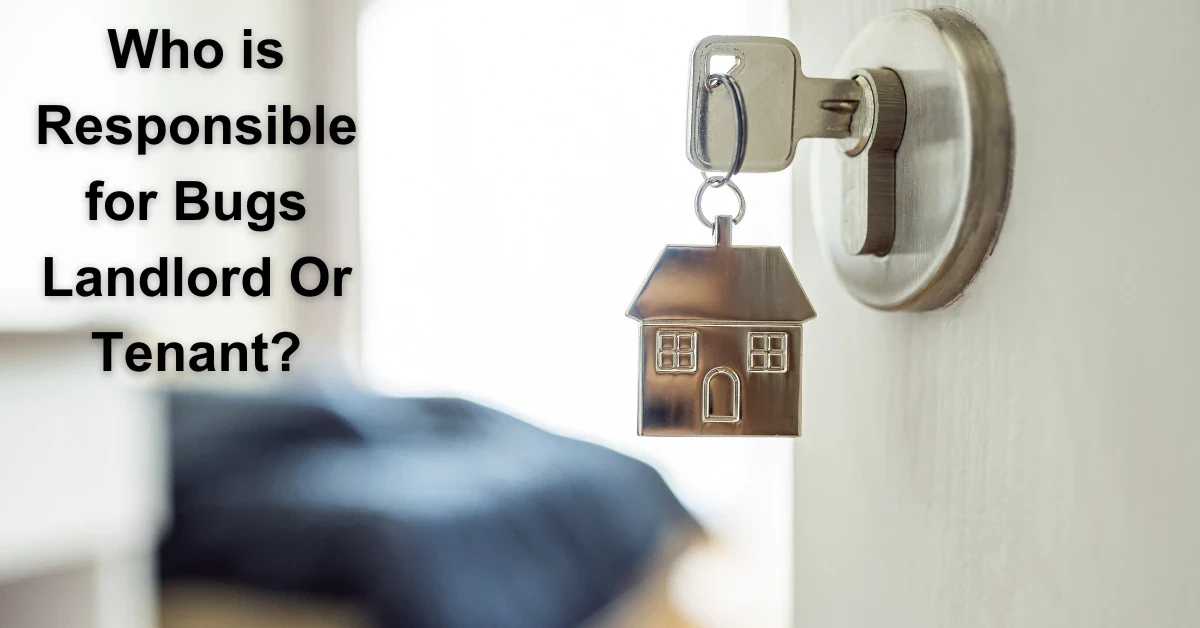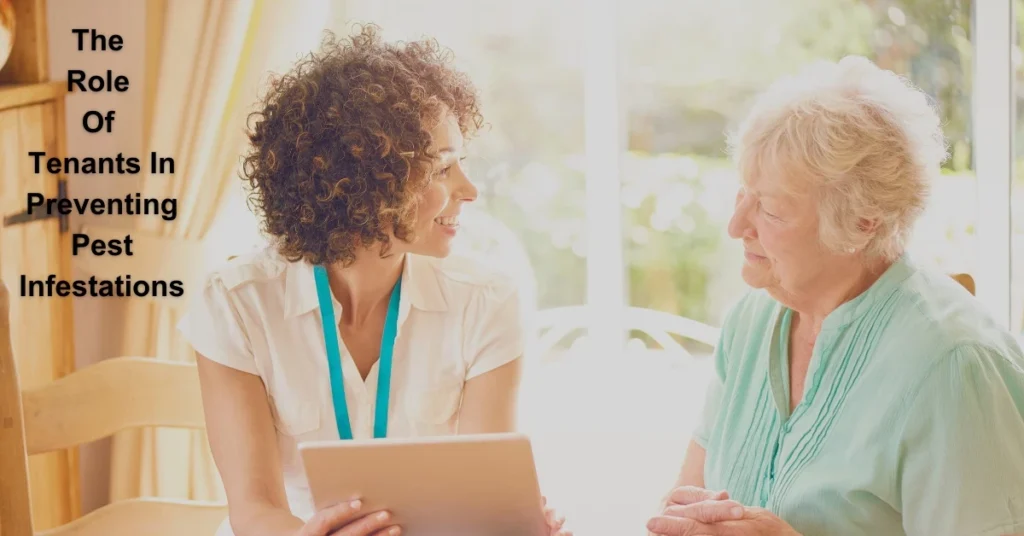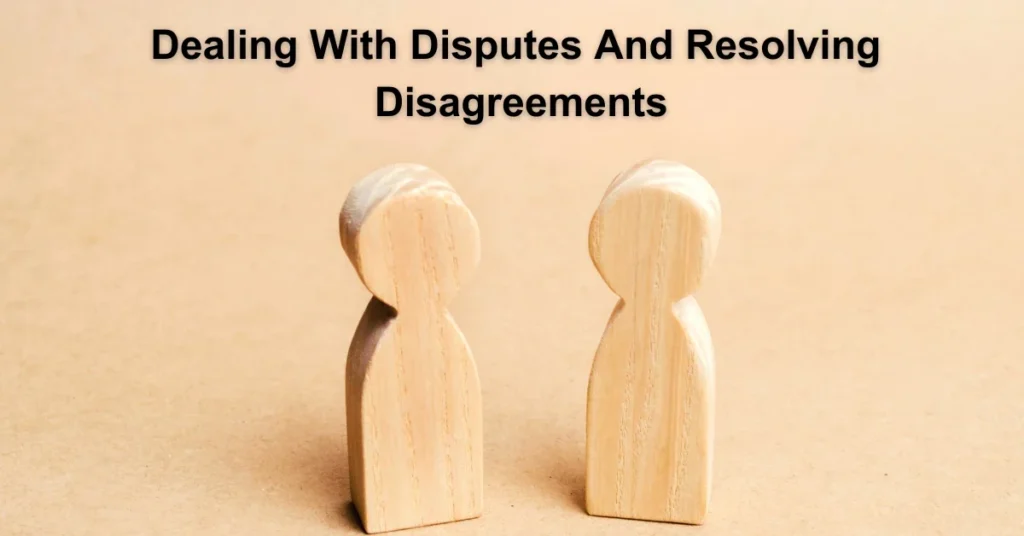As a tenant or landlord, dealing with bugs can be an unfortunate reality. While it is generally the tenant’s responsibility to address pest problems, sometimes the landlord bears some responsibility as well.
The extent of the landlord’s responsibility usually depends on several factors, such as the lease agreement, the severity of the infestation, and how much control the landlord has over the pest control situation.
Regardless of who is responsible for addressing the problem, the bottom line is that both parties must work together to resolve the issue in a timely and effective manner.
Let’s discuss the responsibilities of both landlords and tenants when it comes to bugs and how to prevent these pesky pests from becoming a problem in the first place.

Who Is Responsible For Bugs: Landlord Or Tenant
Renting a house or apartment comes with responsibilities on both the landlord’s and tenant’s sides.
When it comes to pest control, it is vital to understand the legal responsibility between both parties.
Let’s explore the landlords’ duties to ensure habitable living conditions and the tenant’s responsibilities under the lease agreement.
The Landlord’S Duty To Ensure Habitable Living Conditions
Landlords must provide renters with accommodations that are safe, clean, and free of pests. Their legal responsibility includes:
- Making sure the rental unit has proper weather protection, ventilation, and electricity
- Providing hot and cold water to the unit.
- Ensuring all plumbing, sanitary, and heating systems are functional and safe.
- Providing the unit with proper locks.
Providing Pest Control Measures
It is crucial for landlords to provide tenants with a pest-free environment to live in. The landlord’s duty includes:
- Conducting regular pest inspections and taking necessary measures to eradicate any pests.
- Providing education to tenants about prevention methods.
- Hiring professionals to deal with pest infestations, such as bed bugs, rodents, or cockroaches.
Conducting Inspections And Repairs
Landlords must periodically inspect their rental properties to ensure everything is up to par. Their responsibilities can include:
- Conducting annual property inspections.
- Conducting additional inspections whenever necessary.
- Promptly addressing any potential hazards and fixing any damages.
- Scheduling an exterminator as soon as pests are discovered.
Meeting Code-Compliant Standards
Landlords must adhere to specific legal codes and standards when it comes to renting properties to tenants. Their duties include:
- Complying with all building, housing, and health codes.
- Providing tenants with essential amenities and services.
- Ensuring the rental property is suitable for human occupancy.
Tenant’S Responsibilities Under The Lease Agreement
Tenants also carry responsibilities when it comes to pest control in their rental units. Their legal obligations include:
- Promptly reporting any pest problems to the landlord.
- Following all prescribed rehabilitation measures.
- Ensuring proper cleanliness of the rental unit.
- Cooperating with the landlord by allowing access to exterminators and/or repair professionals.
Landlords and tenants both have significant responsibilities when it comes to pest control in rental properties.
Following the legal requirements can ensure a pest-free living environment for all parties involved.
The Role Of Tenants In Preventing Pest Infestations
Who is responsible for bugs landlord or tenant: the role of tenants in preventing pest infestations

Bugs and pests can be a nightmare for any tenant. Although landlords have a legal obligation to maintain a safe and clean environment, tenants also have a duty to keep the rental unit pest-free.
It’s essential to prevent infestations from starting in the first place.
We’ll look at some of the key responsibilities tenants have to keep the premises free from bugs and pests.
The Importance Of Good Housekeeping
A clean and tidy home is a critical factor in controlling pests.
Tenants should maintain a clean living environment by keeping their rental units clean, clutter-free, and well-organized.
This includes cleaning all surfaces regularly, especially those used for food preparation, and keeping all areas of the house tidy.
Cleaning Food Residues
Pests are attracted to food waste. All food residues, including crumbs, spills, and leftover food, should be cleaned up immediately.
Do not leave dirty dishes in the sink or on the counter overnight. Clean kitchen appliances, including the oven, on a regular basis.
Sealing Food Containers
Proper food storage is crucial in preventing pest infestations.
All food containers should be kept tightly sealed, especially those that contain pet food. Dry food should be kept in airtight containers.
Proper Waste Disposal
Tenants should dispose of waste correctly. Garbage bags should be tied tightly and placed in the appropriate outdoor bin as soon as possible.
Do not leave garbage bags or any other waste material outside the bin.
Maintaining The Condition Of The Rental Unit
Tenants should ensure that the rental unit is maintained in good condition.
Fix any leaks or cracks that could provide access to pests. Ensure that the doors, windows, and screens are in good condition.
Sealing Cracks And Crevices
Sealing all cracks and crevices in walls, floors, and ceilings is a preventive measure. This includes sealing utility ports and pipe entry points that lead into the rental unit.
Pests can crawl through remarkably tiny openings.
Eliminating Standing Water
Pests require water to survive, and standing water is a breeding ground for mosquitoes and other pests.
Tenants should eliminate standing water around the rental unit by draining any stagnant water sources, such as potted plants, bird feeders, or outdoor play equipment.
Avoiding Clutter That Offers Nesting Opportunities
Pests, such as rodents, prefer to nest in areas that provide cover, such as cluttered storage areas or piles of clothes.
Discarding unneeded items and keeping storage areas tidy helps to prevent nesting opportunities.
Preventing pest infestations is the responsibility of both landlords and tenants.
Tenants should maintain a clean and tidy rental unit and ensure proper food storage and waste disposal.
He should also maintain the premises, seal cracks and crevices, eliminate standing water, and avoid clutter, which provides nesting opportunities.
By taking these preventive measures, tenants can help to keep their rental unit pest-free while avoiding potential disputes with their landlords.
Dealing With Disputes And Resolving Disagreements
Bugs in a rental property are a common issue that can lead to disputes between landlords and tenants.

When it comes to determining who is responsible for the infestation, tenants, and landlords may have conflicting opinions.
Disagreements about pest control can cause tension and may even result in legal action.
For this reason, it is important to be aware of the rights and responsibilities of each party and develop effective communication and dispute resolution strategies.
Communication Process Among Landlord, Tenant, And Pest Control Professionals
To avoid misunderstandings and disputes, an effective communication process among landlords, tenants, and pest control professionals is essential.
The following are some of the key points to consider:
- Landlords should provide tenants with clear information about pest control policies and procedures.
- Tenants should report pest infestations to landlords as soon as they become aware of the problem.
- Landlords should promptly respond to tenant requests for pest control services.
- Pest control professionals should provide landlords with detailed reports on pest infestations and treatment plans.
Timely Notification Of Pest Infestations
Timely notification of pest infestations is critical for both tenants and landlords.
Failure to report infestations in a timely manner may exacerbate the problem and lead to further damage to the property.
The following are some key points to consider:
- Tenants should contact landlords as soon as they suspect a pest infestation.
- Landlords should respond to tenant requests for pest control services as quickly as possible.
- Pest control professionals should be notified of the infestation as soon as possible.
Cooperation And Access To Rental Units
Cooperation and access to rental units are critical for effective pest control. The following are some of the key points to consider:
- Tenants should cooperate with landlords and pest control professionals to ensure effective pest control.
- Landlords should provide pest control professionals with access to rental units as needed.
- Pest control professionals should be allowed to inspect and treat rental units as necessary.
Solid Documentation And Record Keeping
Solid documentation and record-keeping are crucial for both landlords and tenants when dealing with pest infestations.
The following are some key points to consider:
- Landlords should keep detailed records of all pest control services provided to tenants.
- Tenants should keep copies of all correspondence with landlords and pest control professionals.
- Pest control professionals should provide landlords with detailed reports on pest infestations and treatment plans.
Dispute Resolution Procedures
If a dispute arises between landlords and tenants regarding pest control, there are several dispute resolution procedures that they can follow.
The following are some key points to consider:
- Landlords and tenants should try to resolve disputes through negotiation and mediation before pursuing legal action.
- If mediation fails, tenants may file a complaint with their local housing authority.
- Landlords may file legal action against tenants who fail to cooperate with pest control efforts.
Understanding Rights And Remedies
Tenants and landlords have rights and remedies under the law to deal with pest infestations. The following are some key points to consider:
- Tenants have the right to a habitable living space free of pest infestations.
- Landlords have the right to enter rental units to perform pest control services as needed.
- If landlords fail to address pest infestations, tenants may be entitled to a rent reduction or termination of their lease.
Legal Action And Small Claims Court
If mediation and negotiation fail, landlords and tenants may choose to take legal action. The following are some key points to consider:
- In some states, tenants may be able to file a lawsuit against landlords for damages resulting from pest infestations.
- Landlords may file a lawsuit against tenants who fail to cooperate with pest control efforts.
- Small claims court may be an option for resolving disputes over pest control.
Mediation And Arbitration Options
Finally, mediation and arbitration may be an effective way to resolve disputes between landlords and tenants over pest control. The following are some key points to consider:
- Mediation is a voluntary process in which a neutral third party helps landlords and tenants reach an agreement.
- Arbitration is a more formal process in which a neutral third party listens to both sides and makes a binding decision.
- Both mediation and arbitration can be effective alternatives to costly and time-consuming legal action.
Effective communication and dispute resolution strategies are crucial for dealing with disputes over pest control.
By following the guidelines outlined above, landlords and tenants can avoid misunderstandings and reach mutually satisfactory solutions.
Frequently Asked Questions For Who Is Responsible For Bugs Landlord Or Tenant
Who Is Responsible For Pest Control In A Rental Property?
Both landlords and tenants are responsible for pest control, depending on the circumstances.
Who Is Responsible For Fixing Bug Infestations In A Rental Property?
If the infestation was caused by the tenant’s negligence, the tenant is responsible. Otherwise, it falls on the landlord.
Can A Tenant Withhold Rent If The Landlord Doesn’t Address A Bug Infestation?
No, a tenant cannot withhold rent. However, they can file a complaint with local authorities.
What Can A Tenant Do To Prevent Bug Infestations In Their Rental Property?
Tenants can properly store food, keep the property clean, seal gaps and cracks in walls, and promptly report any signs of pests to the landlord.
Conclusion
Discover who holds the bug responsibility – is it you, the tenant, or the landlord? Take action based on your lease agreement’s terms and your local laws.
Understanding your role can turn a bug-infested nightmare into a resolved situation. Don’t delay, squish that bug problem today!
Reference
https://www.epa.gov/bedbugs/what-landlords-need-know-about-bed-bugs
